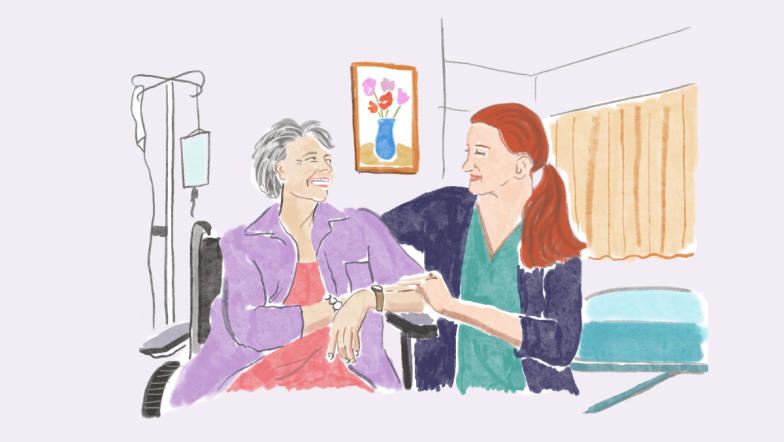What’s stopping people from planning for a safe older age?
27 Jul 2021
When people don’t plan for older age, they leave important decisions about their futures in the hands of other people who may not know, understand, care about, or respect their values.
Planning for older age – or ‘future planning’ – empowers people to think deeply about their priorities, retain dignity and control over their lives, and make legally binding decisions about their future. Future planning can play an important role in safeguarding older people against elder abuse. It is relatively well known that a lot of people don’t plan for older age at all, or only start planning when a crisis hits, but there is little consolidated research into why people don’t future plan.
Recent findings from our elder abuse prevention project Safeguarding Now, Preventing Future Abuse shine a light on what prevents people from planning for their older age in Australia. By better understanding key barriers, Justice Connect and our sector partners will be better equipped to empower more people to future plan – and ultimately, help prevent elder abuse.
Key findings from current research
We looked at key research – with a focus on legal perspectives – from the last 15 years in our literature review What’s stopping us? Why people don’t plan for a safe older age, co-authored with our member firm MinterEllison.
We found 6 key barriers which prevent people from planning for a safe older age:
- A lack of understanding about how to future plan and what it means
- Unclear, complex and inconsistent future planning laws between states and territories in Australia
- Trust that their families will know what to do, despite never having had a conversation about future planning
- Limited access to affordable, culturally appropriate legal services and materials
- Limited help available from service providers due to insufficient training and confusion around responsibility
- Reluctance to talk about getting old, getting sick and dying.
What does planning for a safe older age mean?
Future planning means planning who would make decisions for people if they couldn’t anymore (due to cognitive decline or illness), or planning what people would want to happen if they faced changes in their older age.
This includes planning about where to live if their home was no longer suitable, who would make health decisions for them at the end of their lives, and who would help them manage the bills in their older age.
Future planning can be seen as a 4 step process: thinking about what people want their older age to look like, talking to people you trust about what you want and asking for their help, writing down what is important and any specific decisions made, and formalising decisions in legally binding documents.
How can future planning help prevent elder abuse?
Elder abuse affects up to 1 in 7 older people. It includes financial and emotional abuse, physical and sexual abuse, and neglect.
Elder abuse is a complex problem, and there are many factors that put people at higher risk of elder abuse. For example, we know that older people who are not aware of their rights, and who are dependent on family members, may be at higher risk.
Future planning can help prevent elder abuse because it addresses some of these risk factors. It allows older people to understand their rights and maintain their independence by making decisions that impact their future.
What’s next?
Justice Connect will be consulting with community members and service providers, with an aim to publish our findings on what is stopping people from future planning and how service providers like us can help.
Our research and consultation will have a particular focus on Vietnamese and Chinese communities, LGBTIQA+ people, and people who are ageing alone without support from family or loved ones.
Read our literature review Subscribe to our mailing list

